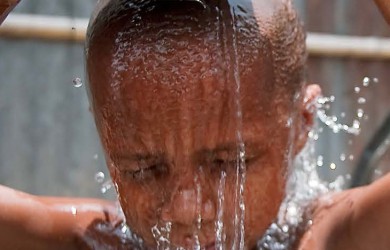- ABOUT US
- RESEARCH
- EDUCATION
- The Graduate School
- PhD Programme
- MSc Programmes
- Capacity Development
- News
- Design and Evaluation of Public Policies (DEPP)
- Design and Evaluation of Innovation Policies (DEIP)
- Evidence-Based Policy Research Methods (EPRM)
- Migration Management Diploma Programme (MMDP)
- Moving the Migration Policy Agenda Forward (MMPAF)
- Online Courses
- Short Courses (Masters)
- Tailor-made programmes
- UNU-MERIT, ITU Academy Training Centre
- Alumni
- Academic Funding
- NEWS
- EVENTS
- PUBLICATIONS
- LIBRARY
World Toilet Day: How Can Firms Make a Difference?
19 November 2015
A third of all humanity — around 2.4 billion people — have no access to adequate sanitation. Worldwide a billion people still defecate in the open. Poor sanitation increases the risk of disease and malnutrition, especially for women and children. Meanwhile, women and girls risk rape and abuse, because they have no toilet that offers privacy. World Toilet Day, held every 19 November, aims to raise awareness about the many people around the world who have no access to a toilet — ...
Continue Reading →Ending Open Defecation — Doing It Properly: SDG 6
17 September 2015
This article is part of UNU’s “17 Days, 17 Goals” series, featuring research and commentary in support of the United Nations Sustainable Development Summit, 25-27 September 2015 in New York City. Goal #6: Ensure availability and sustainable management of water and sanitation for all For universal sanitation coverage, the formulation of the Sustainable Development Goals (SDGs) represents a very positive step forward. It is a far cry from that of the Millennium Development Goals, where the issue o...
Continue Reading →Harnessing Microfinance & Social Networks for WaSH
08 May 2014
When it comes to water and sanitation, does self-supply let governments off the hook? Or do people simply need access, regardless of who supplies the service? A new, joint report by UNU-INWEH and UNU-MERIT explores a hybrid mechanism of microfinance for small community water and sanitation supplies. While access to drinking water and sanitation have been established as human rights since 2010, progress towards and beyond related national Millennium Development Goal targets has been slow, particu...
Continue Reading →12
Archives
Contact
UNU-MERIT
Boschstraat 24
6211 AX Maastricht
The Netherlands
T: +31 43 388 44 00
Email: info@merit.unu.edu
Boschstraat 24
6211 AX Maastricht
The Netherlands
T: +31 43 388 44 00
Email: info@merit.unu.edu
Partner sites
Newsletters
© 2024 UNU-MERIT | Maastricht University





